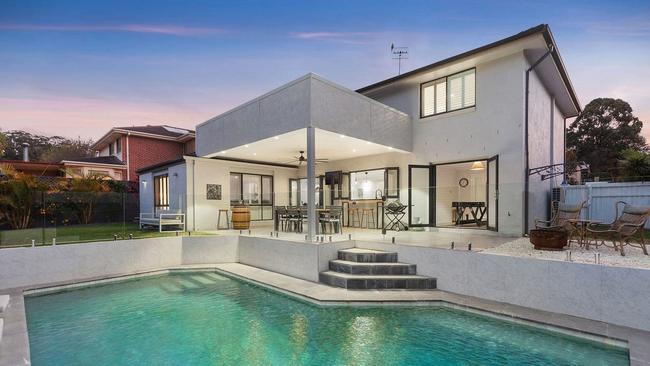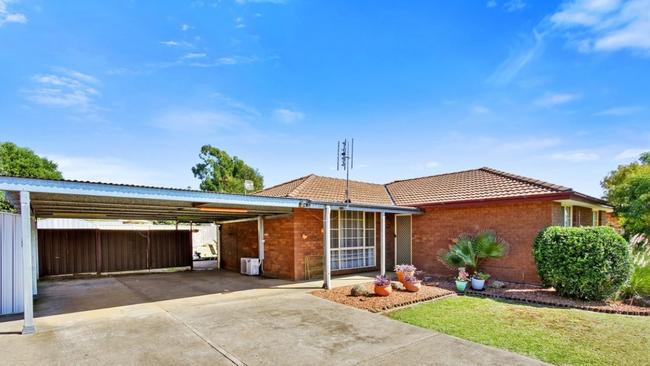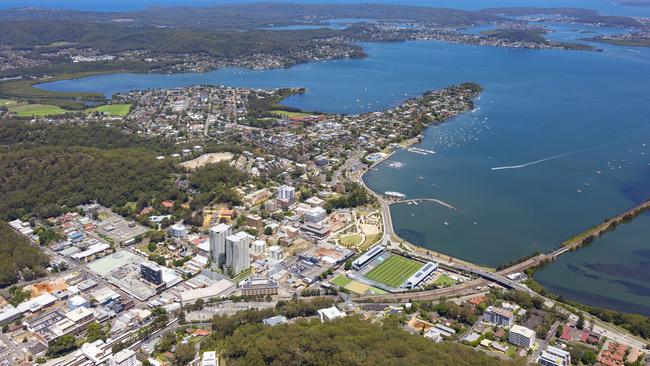Regional NSW gets rise in hurried sales as seachange locations lose shine
Property buyers who swooped into certain seachange destinations during the pandemic are now scrambling to sell amid a change in migration flows and trickier finance landscape.

Property
Don't miss out on the headlines from Property. Followed categories will be added to My News.
Sydneysiders who poured into The Central Coast and regional NSW during the pandemic to snap up homes have been hitting the panic button after watching their investments go sour.
New figures have revealed up to one in five of the homes being sold in parts of regional NSW over the past six months were properties purchased during the period from mid-2020 to early 2022.
This was when interest rates were at record lows and city residents were streaming into regional areas for a tree-change or sea-change in what was then heralded as a great regional shift.
The tide appears to have now turned following the fastest interest rate hikes in 30 years and a general movement back to Sydney’s inner and middle-ring suburbs.
Short turnaround sales, involving properties listed less than three years after their owner bought them, were most prevalent in the New England and North West region, according to the PropTrack data.

About 20 per cent of the property sales in the region, which includes Armidale, Tamworth and Moree, were short turnaround sales.
A similar share of sales in the Murray region, which includes Albury, and the Riverina area, encompassing Wagga Wagga and Griffith, were properties held for less than three years.
On the once booming Central Coast, one of the most popular markets for Sydneysiders during the pandemic, the share of sales was about one in six, or 15.6 per cent over the last six months.
A report from CoreLogic noted that the rise in short-term resales was a result of a “reversal” in the popularity of regional areas.
“Australia’s sea-change and tree-change markets are adjusting to changing demand from higher interest rates, affordability constraints, and migration flows,” the Pain and Gain report said. “This shift in popularity from tree-change and sea-change markets is also now being reflected in a higher incidence of loss-making sales.”

PropTrack economist Paul Ryan said the higher share of short resales in regional areas could be a “bellwether” of more homeowners battling with “mortgage stress”.
“There would be owners who sell before they reach a point where they are struggling, but it’s too early to know for sure,” he said.
There were likely multiple other reasons homeowners were relisting their properties after only a few years of tenure, Mr Ryan added.
Some homeowners’ decision to sell amid looming struggles to make repayments at higher rates needed to be considered in the context of the pandemic-era gains in the market, he said.
“Some homeowners are sitting on a lot of equity so that would encourage them to move a decision to sell earlier,” he said.
MORE: How migrant turned $920pw into 8 homes worth $10m

“Others would actually be in a strong position, upgrading sooner because their house is worth a lot more. We can see that in lending figures showing more people are buying with lower (loan to value ratios).”
Recent sales suggested short turnaround sales still incurred a risk.
A house on Fairway Dr in Central Coast suburb Terrigal that was snapped up in 2022 for $2.3m was recently resold for $100,000 less.
In nearby Gosford, units on John Whiteway Dr and Mann St recently resold for about $30,000 higher than their 2021 prices, meaning the sellers would likely have made a loss after factoring in stamp duty and interest costs and other expenses associated with buying and selling.
REGIONS WITH MOST SHORT-HOLD RESALES
(By proportion of resales after less than three years)
New England and North West 20.3%
Murray (includes Albury) 19.6%
Riverina (Wagga Wagga, Griffith) 19.2%
Central West (Bathurst, Orange) 18.3%
Far West and Orana (includes Dubbo) 17.3%
Hunter Valley exc Newcastle 16.9%
Mid North Coast (Port Macquarie, Taree) 16.7%
Capital Region 16.3%
Central Coast 15.6%
Richmond-Tweed 15.4%
.





